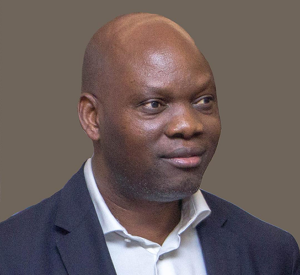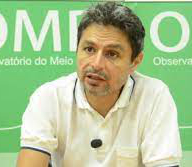Chris Maroleng
Military interventions will not solve the underlying problems that caused the ‘insurgency’ in the first place
Cabo Delgado province in Northern Mozambique has been the epicentre of a violent conflict that has claimed the lives of more than 4 000 people and displaced nearly a million over the past five years. To date, military interventions have had limited success and only brought relative stability to limited regions within the province. Dialogue with all the parties involved — the government, the mining companies, the communities living there and the extremists — will be difficult, but is vital to bring an end to the violence. Civil society leaders can and should play a critical role in creating platforms for dialogue where relevant stakeholders can come together, voice both their interests and grievances, and work together to find mutually beneficial solutions that would mitigate the need for violence.
The Centre for Democracy and Development, Good Governance Africa (GGA) and the Mail & Guardian hosted a webinar that featured researchers and practitioners from Mozambique and the wider region, to discuss the current state of the conflict and the potential for alternative interventions to bring peace to the remote province and the region.
Chris Maroleng, Global Advisor and Executive Director of GGA, opened proceedings with a short summary of the situation in Cabo Delgado, and introduced the speakers. He said there has been an “over-focus” on military intervention without a concomitant effort to address the root causes of the conflict. The GGA believes that inclusive governance and the just allocation of resources is key to addressing conflict in Northern Mozambique and across the wider continent.
 Professor Adriano Nuvunga
Professor Adriano Nuvunga
Professor Adriano Nuvunga, Executive Director of the Center for Democracy and Development (CDD) and Chairperson of the Mozambique Human Rights Defenders Network, was asked for a short brief on the situation in Cabo Delgado. He said it has become a “forgotten but disastrous” conflict. At first, the government failed to take the conflict seriously and characterised it as simple “banditry”. As the situation has gotten increasingly serious over the last few years, the government has worked to lay the blame on the work of external forces and has not “acknowledged its own governance failure as one of the key drivers of the conflict there”.
The main drivers of the conflict are gross violation of human rights and extraction of minerals without adequate compensation for the people living in the region. Nuvunga said there are many historical grievances in the area, which go back to the civil war, in addition to issues surrounding mining and logging; resources are being extracted without being put back into providing basic services for the local communities. Since the conflict began there has been a lack of coordination of the military forces there, allowing the insurgents to seize large areas of territory easily.
Professor João Feijó, Researcher Coordinator, Observatorio do Meio Rural (OMR), made a presentation concerning the possibility of dialogue in Cabo Delgado — between the companies mining there, the government and the people living in the area. He said Mozambique has had a long history of violence, going back at least 100 years, which involved “very little dialogue”. There is hardly any debate about what is causing the conflict in the province, but the government is largely unwilling to communicate with communities to hear their grievances, increasing the risk of violence.
 Professor João Feijó
Professor João Feijó
Despite huge unemployment existing in the province, the mining companies brought in thousands of external workers. This was one of the most significant drivers of the conflict, and has led to deep resentment and distrust in the local communities, said Feijó.
Professor Anthoni van Nieuwkerk, Thabo Mbeki School of Governance, University of South Africa, said that a military intervention is inadequate to address what is driving violent extremism in Cabo Delgado. “We need a broader discourse than counter-terrorism,” he noted. The underlying causes of the conflict include state fragility, poor governance, political and social marginalisation, youth marginalisation and predatory global economics.
“Governments play a significant role in the emergence of violent extremism, by designing and arbitrating over the physical, social and political conditions that produce certain behavioural outcomes within human populations,” said Van Nieuwkerk. “Politicians can avoid creating the conditions that lead to violent extremism, but these days, they are increasingly motivated by self-interest.”
Organised crime relies on corrupt government and corrupt corporations to facilitate their operations, and extremists interact with organised crime syndicates to sustain their activities. Increasingly sophisticated means are used by extremists such as Al-shabab to recruit disillusioned youth into their circles, especially through social media such as TikTok and WhatsApp. African governments are not dealing with this threat well. In Mozambique, the government strategy was firstly avoidance, and it is now counter-terrorism, possibly inspired by their business partners. “As we have seen in Nigeria and Somalia, these initiatives are proving ineffective,” he pointed out.
 Professor Anthoni van Nieuwkerk
Professor Anthoni van Nieuwkerk
Van Nieuwkerk said that SADC and SAMIM (Southern African Development Community Mission in Mozambique) face many challenges, especially regarding coordination of their troops in Cabo Delgado. “The governments in the Southern Africa area must supply aid that goes beyond military intervention. SADC’s response to the crisis in Mozambique has been to form a counter-terrorism unit, instead of focusing on moral leadership and better governance.”
He used the example of the conflict in Ukraine, and said that throwing more military resources into the conflict will only perpetuate the situation there. This is not the solution; dialogue is. “All parties must be given the tools for a negotiated settlement, even those regarded as ‘the enemy’.”
Feijó said the causes of the Cabo Delgado conflict are many and complex. There is a deep feeling that the state is against the people, not for them, and this goes back a long way. Like most Southern African countries, Mozambique was historically just a “corridor for extracting and exporting raw materials”, designed to serve Western interests, not to promote local communities and development. It is evident that there is a war between the West and the Islamic State movements, and that Mozambique has become another stage where this war is playing out.
Piers Pigou, Southern Africa Project Director, Institute for Security Studies, was asked by Maroleng about the security situation in Cabo Delgado. He said it was difficult to get accurate information from and about the area, as he is often reliant upon single sources of information, and these are often sporadic. The state sources often suggest that the conflict is under control and that the insurgents are losing. While there have been fewer reports of violent incidents, particularly in the areas where Rwandan troops are deployed, the situation of the internal displacement of people is still very complex. The conflict has also expanded: initially, there were incidents of violence in eight districts, but now there have been reports from 16 districts, including the Southern districts. This has in turn caused an expansion of Rwandan troops into more districts.
 Piers Pigou
Piers Pigou
The SAMIM forces do not appear fit for purpose in this conflict, and lack adequate intelligence and aerial support. There has been some containment of the conflict, but smaller non-state armed insurgent groups are still able to make attacks, particularly on the supply trains of the armed forces. About 125 of these attacks have been claimed by the Islamic State, however, the link between the Islamic State and local insurgents in Cabo Delgado remains tenuous. Keeping troops in the area supplied is an issue. The rains have been late, which has curbed the number of attacks. As the security situation varies from area to area, the “improvements” claimed by the Mozambican government are hard to prove.
Will the military response keep providing diminishing returns, asked Maroleng? Pigou said he is not sure about this, but sustaining the forces on the ground is becoming an issue, as South Africa is carrying the bulk of the costs. Consolidating the security situation is essential — and a clear strategy is required for this — in order for other interventions to be effective. “The Rwandan troops have established good relations with the local communities, and that is something we can definitely learn from,” he said.
Closing remarks
Van Nieuwkerk said we should think about the lessons that can be learned from Afghanistan. South African troops have to be deployed for security reasons in their own country; Eswatini is burning; and we might have a state of emergency soon because of the power crisis. It can also be problematic to cross borders and try to solve neighbours’ problems. “We need to boost democracy and good governance in the whole region, and the civil society leaders must pick up that baton.”
Feijó said the problem is one of development and rebuilding, providing services such as education and health, social participation channels and agricultural assistance. All of this requires good governance, but unfortunately the main debate right now is about how to fight the terrorists. “I’m not optimistic about the future, but hopefully I will be proved wrong in this regard.”
Maroleng said it is obvious that there is no single solution to the problems in Cabo Delgado, but perhaps the parties concerned can begin to engage each other in some sort of a dialogue to resolve the grievances of those people living there. “This is the time for civil society actors to come together and make a difference.”
Nuvunga said that we need to understand at a granular level who the people of Cabo Delgado are, and what their real grievances are. How do we measure “progress” in this conflict if we don’t understand their situation clearly? The Mozambican soldiers are not being fed or paid properly, and neither have many other members of the civil service, such as teachers. The state is failing; Maputo may look beautiful, but the remote districts are crumbling. Dialogue is required at national level and in Cabo Delgado. “Poor governance is providing room for violent extremism, but the government is still seeking military solutions, not sustainable ones.”